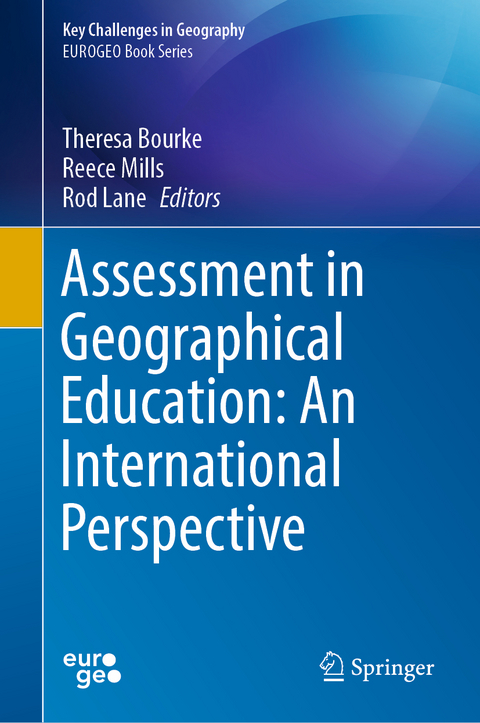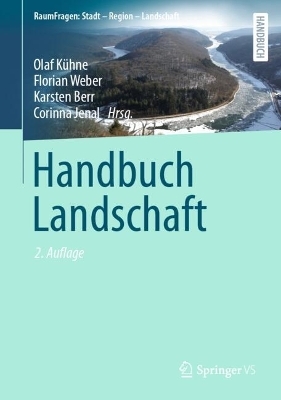
Assessment in Geographical Education: An International Perspective
Springer International Publishing (Verlag)
978-3-030-95138-2 (ISBN)
In recent years there has been increased attention paid to the importance of assessment in Geographical Education, the chosen subject for this book. Assessment is an important tool for collecting information about student learning and for providing timely data to inform key stakeholders including students, teachers, parents and policymakers. To be effective, assessment needs to be valid, reliable and fair. Validity is about ensuring that we assess what we claim we are assessing. Reliability is about measuring performance and understanding in a consistent way. Without validity and reliability, assessment is unlikely to provide equitable opportunities for students to demonstrate what they know and can do. As geography educators it is therefore important that we identify the core concepts and skills in geography that we want students to master. We need a clear understanding of what the progression of learning looks like for each concept and skill so we candevelop fit for purpose assessments that track and improve student learning. While there is a substantial literature on evidence-based assessment in secondary school contexts, research exploring best-practice assessment in geography is rare. This is a concern given the distinctive nature of geography and the important role of assessment in the learning process.
This scholarly collection seeks to address this issue by connecting research in educational assessment with the domain of geography. The chapters are written by leading researchers in Geographical Education from across the globe. These chapters provide examples of innovation through the collective voices of geography teacher educator scholars from across Australia, USA, South Korea, Germany, Switzerland and Singapore. What unifies the work in this book, is that each chapter focuses on a key feature of the discipline of geography, providing scholarly examples of evidence-based practices for assessing student's knowledge and skills.
lt;p> Associate Professor Theresa (Terri) Bourke has worked in the Faculty of Education at the Queensland University of Technology (QUT) since 2009. In that time, Terri has held various coordination roles including Undergraduate Research Pathways Coordinator, Course Coordinator (Bachelor of Education) and Academic Program Director. Her research focuses on three main areas: (1) professionalism, professional standards and quality in Initial Teacher Education (ITE); (2) assessment in geography education; and (3) teacher educators' epistemic reflexivity for teaching about/to and for diversity for which she has an Australian Research Council (ARC) grant. Terri has an extensive history working with Queensland schools to improve quality, especially in how they use data to inform practice. She has been an invited advisor to both the Australian Curriculum and Reporting Authority (ACARA) and Queensland Curriculum and Assessment Authority (QCAA) for geography. The quality of her research and teaching has been recognised with 12 prestigious awards at QUT. She is the Co-editor of Geographical Education, the only academic journal in Australia. Terri is the incoming President for the Australian Teacher Educators' Association Executive Committee.
Introduction - Surveying the landscape of assessment in geography education.- Binaries and silences in geography education assessment research.- Part I: Assessment related to cross-cutting concepts and skills in geography.- Assessing systems thinking in geography.- Assessment of mapping learning progressions in geography.- Assessing spatial skills/thinking in geography.- Part II: Assessment related to the signature pedagogies of inquiry and fieldwork.- Integrating assessment effectively into international fieldwork: A case study using student-led teaching and learning.- Inquiry-based fieldwork assessment for and as learning in geography.- Part III: Assessment as a social justice endeavour in geography education.- The National Assessment of Educational Progress (NAEP): A closer look at US gaps and trends in geography achievement.- Focusing on quality, forgetting inequalities: Assessment within GIS in the geography Curriculum and Assessment Policy Statement (CAPS) in South Africa.- PartIV: Future directions for assessment in geography education.- Online adaptive assessment of map skills.- Engaging with conceptual acrobatics: Geography assessment standards and rubrics.- Reflecting on the assessment landscape of primary geography.
| Erscheinungsdatum | 01.03.2022 |
|---|---|
| Reihe/Serie | Key Challenges in Geography |
| Zusatzinfo | VIII, 232 p. 34 illus., 14 illus. in color. |
| Verlagsort | Cham |
| Sprache | englisch |
| Maße | 155 x 235 mm |
| Gewicht | 571 g |
| Themenwelt | Naturwissenschaften ► Geowissenschaften ► Geografie / Kartografie |
| Sozialwissenschaften ► Pädagogik | |
| Schlagworte | Adaptive Formative Assessment • Assessment • evidence-based • Eye Tracking • Fieldwork • Future directions • geographical education • Geography • inquiry-based learning • learning progressions • rubrics • Social/Emotional Measurement • spatial skills • summative • systems thinking |
| ISBN-10 | 3-030-95138-3 / 3030951383 |
| ISBN-13 | 978-3-030-95138-2 / 9783030951382 |
| Zustand | Neuware |
| Haben Sie eine Frage zum Produkt? |
aus dem Bereich


